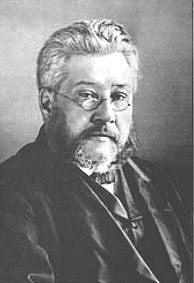“Oh that my head were waters, and mine eyes a fountain of tears, that I might weep day and night for the slain of the daughter of my people.”— Jer 9:1
 Jeremiah is known as the “weeping prophet.” A theme of tears seems to follow him wherever he goes. Jeremiah cries out for his people, for their coming destruction, as a call for moral reform, and over the destruction that eventually does lay waste to Jerusalem. Christians throughout the history of the Church have asked the question, “over what do we rightly weep?” In each generation there is a place to weep over the troubles and evils in our world, and there is a place to cry out for peoples and cultures to turn away from the things that break and wound their relationship with their creator.
Jeremiah is known as the “weeping prophet.” A theme of tears seems to follow him wherever he goes. Jeremiah cries out for his people, for their coming destruction, as a call for moral reform, and over the destruction that eventually does lay waste to Jerusalem. Christians throughout the history of the Church have asked the question, “over what do we rightly weep?” In each generation there is a place to weep over the troubles and evils in our world, and there is a place to cry out for peoples and cultures to turn away from the things that break and wound their relationship with their creator.
 I read a sermon by Charles Spurgeon this week that did just that. It was entitled “India’s Ills and England’s Sorrows,” and it used the occasion of the Indian Rebellion of 1857 to call people to weep for their own broken community. I am always impressed with Spurgeon’s masterful use of language and emotion to pierce people’s hearts. I suppose that is why he is called the “prince of preachers.” He relates the desire for war stirred up in the hearts of the British after a brutal slaughter of English men and women to what should be their desire to wipe out the sin that so entangles their community. His prayer and call is this, “Ah, may God be pleased to raise up many who shall warn this city, and bid Christian people by day and night ‘for the slain of the daughter of our people!’ Christians, never leave off weeping for men’s sins and infamies!”
I read a sermon by Charles Spurgeon this week that did just that. It was entitled “India’s Ills and England’s Sorrows,” and it used the occasion of the Indian Rebellion of 1857 to call people to weep for their own broken community. I am always impressed with Spurgeon’s masterful use of language and emotion to pierce people’s hearts. I suppose that is why he is called the “prince of preachers.” He relates the desire for war stirred up in the hearts of the British after a brutal slaughter of English men and women to what should be their desire to wipe out the sin that so entangles their community. His prayer and call is this, “Ah, may God be pleased to raise up many who shall warn this city, and bid Christian people by day and night ‘for the slain of the daughter of our people!’ Christians, never leave off weeping for men’s sins and infamies!”
 If we are to see any tragedy as a call to repentance, it must be FIRST a sorrow over the brokenness of our own ability to love like Jesus. THIS is what I want to weep for, it starts with me, and if my own heart is so hard I cannot weep over my own brokenness how could I ever expect to be equipped to call out another. The hope of the Gospel is that we have a healer that has called us to love. Any condemnation that we give out is a condemnation of the church that we have not loved like Christ, for any brokenness we see shows us we have not allowed the healer to reign.
If we are to see any tragedy as a call to repentance, it must be FIRST a sorrow over the brokenness of our own ability to love like Jesus. THIS is what I want to weep for, it starts with me, and if my own heart is so hard I cannot weep over my own brokenness how could I ever expect to be equipped to call out another. The hope of the Gospel is that we have a healer that has called us to love. Any condemnation that we give out is a condemnation of the church that we have not loved like Christ, for any brokenness we see shows us we have not allowed the healer to reign.
 Jeremiah is known as the “weeping prophet.” A theme of tears seems to follow him wherever he goes. Jeremiah cries out for his people, for their coming destruction, as a call for moral reform, and over the destruction that eventually does lay waste to Jerusalem. Christians throughout the history of the Church have asked the question, “over what do we rightly weep?” In each generation there is a place to weep over the troubles and evils in our world, and there is a place to cry out for peoples and cultures to turn away from the things that break and wound their relationship with their creator.
Jeremiah is known as the “weeping prophet.” A theme of tears seems to follow him wherever he goes. Jeremiah cries out for his people, for their coming destruction, as a call for moral reform, and over the destruction that eventually does lay waste to Jerusalem. Christians throughout the history of the Church have asked the question, “over what do we rightly weep?” In each generation there is a place to weep over the troubles and evils in our world, and there is a place to cry out for peoples and cultures to turn away from the things that break and wound their relationship with their creator. Today we cry out for many things. Some of us weep over our broken relationship with our environment, others over abortion. Some weep for they fear the “Family” as they know it is breaking down and yet others cry for an end to wars. There is no end to brokenness over which we should weep. However the most common response I see in the world in a failure to weep at all.
We are a culture that is complacent to the brokenness around us until it breaks in upon us with violence. We weep when tragedy and terror strike, when the shattering of lives finally is able to soften our hearts to the shattered nature of this world. It is at this time that many preachers have often stood up like Jeremiah and called people to reform.
 I read a sermon by Charles Spurgeon this week that did just that. It was entitled “India’s Ills and England’s Sorrows,” and it used the occasion of the Indian Rebellion of 1857 to call people to weep for their own broken community. I am always impressed with Spurgeon’s masterful use of language and emotion to pierce people’s hearts. I suppose that is why he is called the “prince of preachers.” He relates the desire for war stirred up in the hearts of the British after a brutal slaughter of English men and women to what should be their desire to wipe out the sin that so entangles their community. His prayer and call is this, “Ah, may God be pleased to raise up many who shall warn this city, and bid Christian people by day and night ‘for the slain of the daughter of our people!’ Christians, never leave off weeping for men’s sins and infamies!”
I read a sermon by Charles Spurgeon this week that did just that. It was entitled “India’s Ills and England’s Sorrows,” and it used the occasion of the Indian Rebellion of 1857 to call people to weep for their own broken community. I am always impressed with Spurgeon’s masterful use of language and emotion to pierce people’s hearts. I suppose that is why he is called the “prince of preachers.” He relates the desire for war stirred up in the hearts of the British after a brutal slaughter of English men and women to what should be their desire to wipe out the sin that so entangles their community. His prayer and call is this, “Ah, may God be pleased to raise up many who shall warn this city, and bid Christian people by day and night ‘for the slain of the daughter of our people!’ Christians, never leave off weeping for men’s sins and infamies!” But what do we cry for? And how do we cry? I am reminded of the proclamations of many religious leaders after 9/11 and hurricane Katrina that the causes of our ills were to be placed upon the shoulders the homosexuals and abortionists. To me this sort of proclamation is not that of a prophet, but of a propagandist, a call not out of love, but from a loathing that is sickening to me. It sickens me because I see the same dark tendency within my own heart.
 If we are to see any tragedy as a call to repentance, it must be FIRST a sorrow over the brokenness of our own ability to love like Jesus. THIS is what I want to weep for, it starts with me, and if my own heart is so hard I cannot weep over my own brokenness how could I ever expect to be equipped to call out another. The hope of the Gospel is that we have a healer that has called us to love. Any condemnation that we give out is a condemnation of the church that we have not loved like Christ, for any brokenness we see shows us we have not allowed the healer to reign.
If we are to see any tragedy as a call to repentance, it must be FIRST a sorrow over the brokenness of our own ability to love like Jesus. THIS is what I want to weep for, it starts with me, and if my own heart is so hard I cannot weep over my own brokenness how could I ever expect to be equipped to call out another. The hope of the Gospel is that we have a healer that has called us to love. Any condemnation that we give out is a condemnation of the church that we have not loved like Christ, for any brokenness we see shows us we have not allowed the healer to reign.











